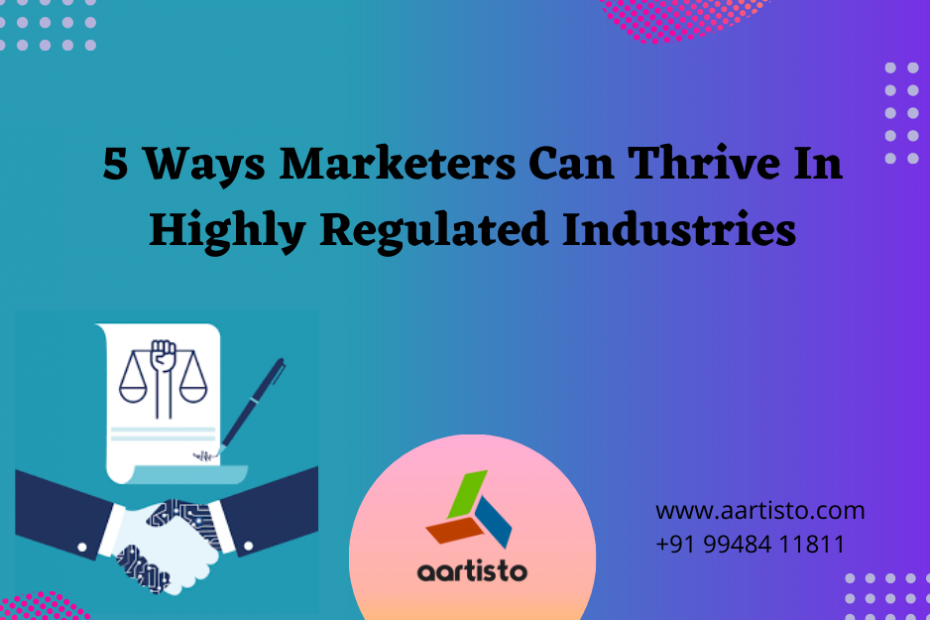Highly Regulated industries
Marketers who work in highly regulated industries face many challenges when it comes to reaching their audience personally and appropriately. Businesses such as financial services and healthcare have different protocols on how to market to consumers – especially where personal or financial information is concerned.
In the new world of marketing, the rules are changing every day. Also, Marketers who serve regulated businesses often struggle constantly, and this is a nasty problem. For one, there are many layers of rules and regulations when it comes to marketing. Therefore, the Federal Trade Commission (FTC) has truth, advertising, credit, and privacy standards that apply to all advertising. They also have certain rules and compliance guides for specific professions.
The best guidelines for highly regulated industries
So clearly, compliance is important. Here are some professional terms and guidelines for marketing and communications:
- Healthcare, pharmaceuticals and insurance companies must ensure that their marketing communications comply with the Health Insurance Portability and Accountability Act of 1996 (HIPAA). The Affordable Care Act (ACA) is having a significant impact on the way health and drugs are assembled and marketed in the United States.
- Marketers targeting Medicare or Medicare-eligible people must comply with the Medical Marketing Guidelines issued by the Center for Medical and Medical Services (CMS) in addition to HIPPA.
- Financial services must meet the various guidelines of NGOs such as the Advertising Securities and Exchange Commission (SEC) and the Financial Industry Regulatory Authority (FINRA). Channels like Google, Twitter and Facebook also have their own rules for financial institutions.
- Alcohol and tobacco companies have very strict rules in their marketing. Google and Microsoft have policies that restrict or prohibit the promotion of alcohol and tobacco products on their advertising networks.
- Public companies must comply with the Sarbanes-Oxley Act, which forced drastic reforms to improve financial disclosures and prevent account fraud. There are several customer relationship management (CRM) processes that have a direct impact on financial statement.
- Government agencies are often subjected to intense scrutiny for collecting information about citizens or using funds for advertisements that appear to be in vain.
Here are the 5 Ways Marketers can thrive in Highly Regulated Industries
1. Learn the rules inside and out
Yes, there are usually many legal multiple pages, but for marketers working in an organized business, this is an important step. While it may seem like a good idea to trust an individual in a group or organization as an expert in the law, you need a backup.
If only one person knew how to play the game, everything would stop when they did not know how to call the scenes. Legal professionals are very strict at the right time, so it is important to arm yourself with a solid, first-hand understanding of the rules.
2. Update on Changes
The more things are regulated, the more the rules change. That’s why it’s important to keep up with new and upcoming developments as they happen. Subscribe to regular updates from regulatory agencies related to your business via email, RSS feed, or Google notifications. Find sources of information such as financial regulatory news on Reuters, Information Week health care news and analysis, or New York Times features on control and regulation. This turbulent situation is only going to increase as new social media channels emerge every day.
3. Create adequate review time on the marketing schedule
Whenever there are extra steps in the review process, you should set aside more time than you think you need to. Build-in that room and make sure the right people have the opportunity to review your campaigns. This can be a challenge in new areas like social media. Your Facebook ad asking you to share selfies while enjoying your favorite liquor may be accepted by your brand team. Make sure you know about every company and organization involved in your business practices. Be very clear about the role your legal department plays and what it should review.
4. Understand the differences around the world
Terms vary everywhere. In Russia, in 2013, advertising for alcohol was banned in almost all media. In Sweden and Norway, advertising for children under the age of 12 is illegal. Canada’s anti-spam law is now in place, making it one of the toughest in the world. In today’s world economy, some businesses can be said to be completely local. Email and social media are expanding far and wide, and it is important to know how laws in different countries affect your marketing efforts.
5. Personalize it (where and when you can)
Just because an email campaign complies with the rules does not mean it has to be personal. There are ways to provide the communications that people want without encroaching on their privacy or violating the rules. Customization can help you stay consistent. Using dynamic content, a health insurance marketer can ensure that an email sent to a medical team member in Manitoba complies with CMS regulations and Canadian anti-spam laws. Or the mortgage broker can e-mail opportunities across the United States, while at the same time print the state-specific denial language well.
We at Aartisto Digital Marketing Agency provide the best 5 Ways Marketers can thrive in Highly Regulated Industries. For best results and to get more business LET’S DISCUSS
wa.me/+1(512)222-4214
https://aartisto.com/5-important-functions-of-an-online-catalog/
